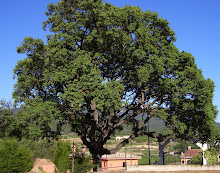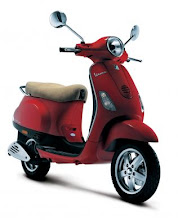The original news story in Catalan was written by Lluís Llort and published in El Punt Avui here. The following is an unauthorized translation:
"An accelerated Llull"
Last evening, at the
Palau de la Generalitat [seat of the regional Catalan government] and chaired by President Mas, took place
the ceremony of the 32nd Ramon Llull literary prize, the highest doted (90,000 euros) one for a Catalan book, organized by the Catalan government and the Planeta
publishing house, which will publish the winning novel. This year's winner is Imma Monsó (Lleida, 1958) with the novel "The Fast Woman", which she presented in the competition as "We will be brief" and under the pseudonym of Alice Nes; it was
chosen from 58 original manuscripts that participated this year.
Vincent
Villatoro, president of the Institut Ramon Llull [cultural institution modeled after the British Council or the Cervantes Institute], before presenting the
winner had some words of remembrance for the recently deceased Carlos Pujol, writer, critic and jury member for 31 years. The members of this year's jury were Sam Abrams, Laura Borras, Leonello Brandolino,
Teresa Colom, Pere Gimferrer, Gemma Lienas and Emili Rosales.
The
first thing Imma Monsó did was to formally thank for the award
and stress that it made her feel "very happy", though her facial expression never
corroborated this. She
then read a few lines of the novel and explained it with a
well-structured speech, delivered maybe a little too fast due to her nervousness or to the influence of her novel's main character: "The fast woman is rooted in the wind, so it is like saying she's uprooted."
The main character is a psychiatrist, childless and with a sick father. "She does not have a free minute, which is her main goal in life. She does everything at a rapid pace, perhaps determined by neurological factors, and in
fact the her life's motto is "the quicker the better", applied to the buying of bread,
cutting of her hair or opening a drawer, "said Monsó.
As in nearly all of her works, including "Like a holiday", "A veritable character" and "A
man of his word", the family has a lot of weight: "The novel is a
privileged area to talk about families. It
is a work about family conflicts, especially between the protagonist, her
father and her brother." The protagonist is a woman who runs a lot, always
fast, "as any person today living in an urban environment."
It
is a vindication of the slow, perhaps in the way of Kundera, "a metaphor of
the times we live in, dominated by the immediacy, which is the source of
the hardships we suffer, from the ethical to the economical; is the supremacy
of time over space,
you cannot fit into a mold that is constantly changing, ..." she said, adding: "We are forced to live under the speed's dictatorship, everything must be in real time, as they call it. "The
work includes other issues, too: "There is a generally little-treated relationship, that between father and daughter; there is also a
house in a provincial town in which have lived three generations; I
talked about doctors' manias, because I like that topic, and about the thirst for art. I
also wanted to make a tribute to friendship and dedicate a part to personal
crises, such as the depression suffered by the protagonist, in active form,
of course."
The work is structured in chapters that alternate between first person and present tense, and third person and the past, between speed and reflection. "I made a great effort not to cut too much, as I normally do; thus, this is my thickest book. I am satisfied, but not entirely; who ends a novel and remains totally satisfied is either stupid or naive." She had also some autocriticism: "Maybe they will say that my characters are peculiar... It is true that often I put them on the edge of neurosis. This time I have been more meticulous with the creation of the characters." The distressing rhythm of some parts of the work and the protagonist has a harmful element: "From the very beginning or towards the end, but I always end up being the character, and with this novel I ended up very badly ...".
Monsó confessed why she took part in the competition: "Because I have been translated into several languages, but never into French, and the fact that the prize includes this translation makes me excited." And she ended by vindicating the fact of reading, doing it "fully and trying to generate a literature that seeks to create readers, and not to count them."
The work is structured in chapters that alternate between first person and present tense, and third person and the past, between speed and reflection. "I made a great effort not to cut too much, as I normally do; thus, this is my thickest book. I am satisfied, but not entirely; who ends a novel and remains totally satisfied is either stupid or naive." She had also some autocriticism: "Maybe they will say that my characters are peculiar... It is true that often I put them on the edge of neurosis. This time I have been more meticulous with the creation of the characters." The distressing rhythm of some parts of the work and the protagonist has a harmful element: "From the very beginning or towards the end, but I always end up being the character, and with this novel I ended up very badly ...".
Monsó confessed why she took part in the competition: "Because I have been translated into several languages, but never into French, and the fact that the prize includes this translation makes me excited." And she ended by vindicating the fact of reading, doing it "fully and trying to generate a literature that seeks to create readers, and not to count them."
As far as this blogger could find out, none of Monsó's novels have been translated into English. Here you can read a short biography in English and see her bibliography on the pages of the Catalan Writers' Association. There is also an informative Wikipedia entry here.






No comments:
Post a Comment